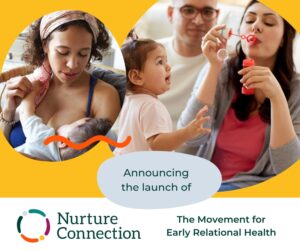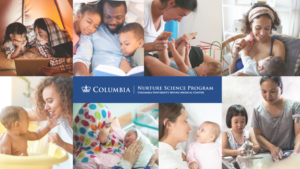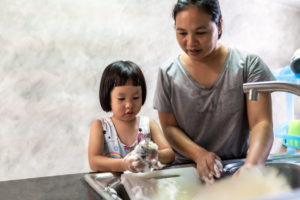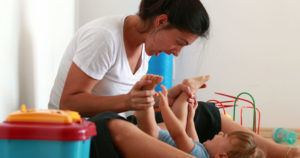Receive updates on research, collaborations, recent news and more.
Dear NSP family, Last month, I announced the launch of Nurture Connection, which brings together a diverse team of parent advocates, pediatric care providers, researchers, early childhood development experts, funders, and policy professionals to advance the field of early relational health (ERH) in a relational way. Today, I am excited to share the research strategy…
I’m excited to announce the launch of Nurture Connection, a new movement conceived by our partners at the Center for the Study of Social Policy (CSSP), dedicated to advancing the field of early relational health. In 2021, the American Academy of Pediatrics (AAP) released a policy statement proposing a paradigm shift in pediatrics: one that…
Together, we have set the stage for a new paradigm of relational health and it is our commitment to emotional connection that brings us to this long-planned and welcome leadership transition.
Throughout our connecting activities series, the Nurture Science Program has provided a new perspective on what are frequently called “joint attention activities.”
How do we help our children (and ourselves) have a better—dare we even say fun—travel experience? By tapping into our biology.
Watching TV or a movie together can be a wonderful opportunity to co-regulate, especially for families! It’s something many of us already do on a regular basis, so why not get the most out of it that we can?
If we make chores activities of connection, we can turn the mundane into something meaningful, while protecting our children’s futures.
We hear a lot about why play is good for children’s brains, but something is going on inside children’s bodies when they’re in a playful state that has phenomenal impacts on their health. Playful interactions can also promote empathy, deepen their capacity to learn, and set them up for healthy future relating.
Tantrums alert us to our child’s need for more connection, more feelings of calm and regulation. This Nurture Science lens offers a simple approach to tantrums that not only helps children potentially avoid a meltdown altogether, but also helps adults in the process.
Humans are social beings, and our bodies really benefit from learning to fall asleep in the calming presence of someone who loves us.









